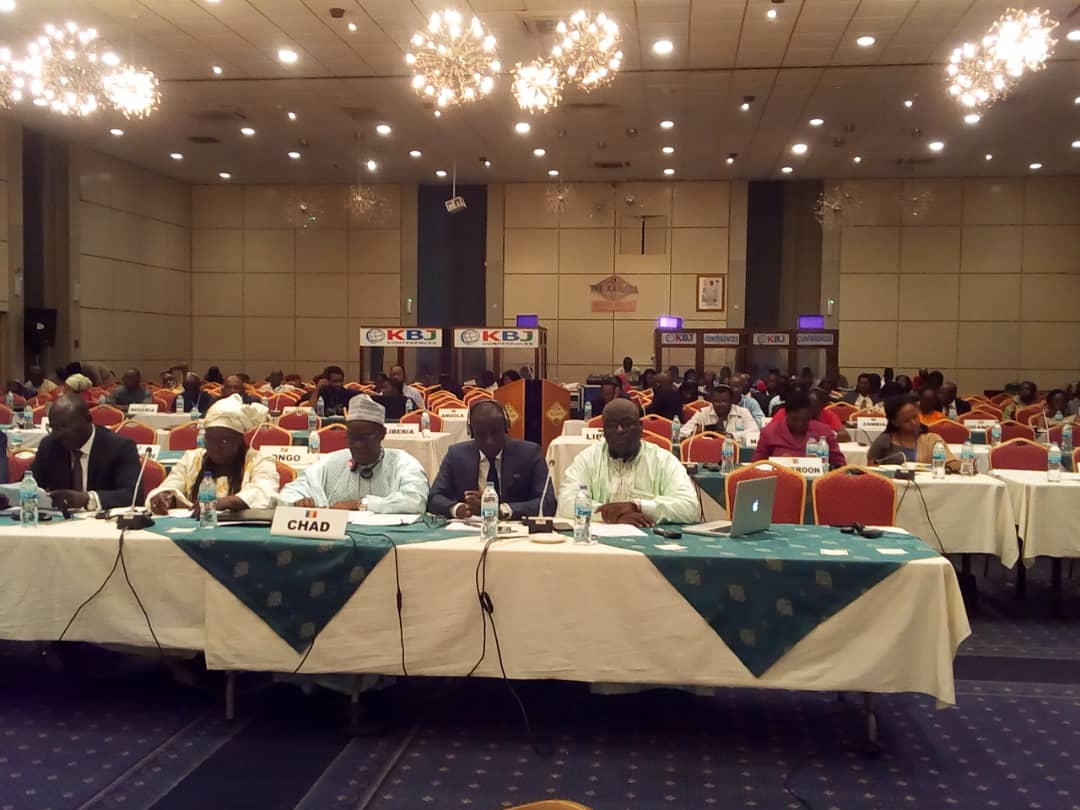On 26 October 2019, the African Commission on Human and Peoples’ Rights (African Commission) reviewed Chad’s 2ndperiodic report. The combined periodic report covered the period 1998-2015 and was submitted to the African Commission in April 2018. The Chadian delegation was led by the Chadian Minister of justice, in charge of Human Rights.
Prior to this review, ISHR, along with the Ligue Tchadienne des Droits de l’Homme (LTDH), drafted a briefing paper on the situation of human rights defenders in Chad. These submissions are intended to assist the Commission, and more specifically Commissioners, in making recommendations to governments.
The briefing paper called on the government of Chad to:
-
fight impunity by ensuring prompt, thorough and transparent investigations of all violations against defenders, prosecution of perpetrators and access to effective remedies for victims;
-
decriminalise homosexuality by repealing article 354 of the Penal Code and refraining from discriminatory laws;
-
repeal the ordinance of 27 June 2018 relating to the associative system and ensure that freedom of association and expression are guaranteed as provided for in the Constitution of Chad;
-
collaborate and work with civil society to promote human rights and protect defenders;
-
end arbitrary arrests and detentions, acts of torture or ill-treatment of defenders;
During the review, Commissioner Zainabo Sylvie Kayitesi, who is also the African Commission’s Special Rapporteur on death penalty and extrajudicial, summary or arbitrary executions in Africa and also in charge of Chad, noted the recent ratification of regional legal instruments such as the Protocol to the African Charter on the establishment of an African court on human and peoples’ rights. The Commissioner regretted the country had not done so regarding the protocol on the statute of the African court of justice and human rights. She deplored the reinstatement of the death penalty in the country – it had been abolished in 2014 – which the government justified citing the increased number of terrorist attacks. ‘It would have been important to know more about extrajudicial execution cases and enforced disappearance in the country and the measures taken by the government to remedy,’ Kayitesi said.
The Special Rapporteur on the rights of women in Africa, Commissioner Lucy Asuagbor, then noted that the government of Chad still had not ratified international or regional instruments protecting the rights of women, such as the Maputo Protocol. ‘There is still a high rate of precocious marriages, discrimination against women and girls’ pregnancy in Chad, as well as a low school enrollment for girls. What measures are taken by the government to keep girls in school to reduce these rates and to ensure parity?’ she asked.
Addressing the situation of LGBTI people and people living with HIV / AIDS, Commissioner Soyata Maiga noted that they continue to be marginalised in Chad. ‘There is no existing text or programme about stigma and discrimination against these populations. What specific training do health personnel receive in relation to the special care of these people? What employment opportunity do they have to better integrate in society?’ asked Commissioner Maiga.
On the situation of older persons and people with disabilities, Commissioner Yeung Kam John Yeung Sik Yuen first congratulated Chad for the adoption of Law No. 07 / PR / 2007 of 9 May 2007 on the protection of persons with disabilities. However, Chad is yet to ratify the Protocol to the African Charter on Human and Peoples’ Rights on the rights of persons with disabilities in Africa, and the Protocol to the African Charter on Human and Peoples’ Rights on the Rights of older persons.
Talking about the situation of defenders, Special Rapporteur on human rights defenders and vice-chairperson of the African Commission, Commissioner Rémy Ngoy Lumbu noted that despite the initiatives taken by the government of Chad, many defenders remained under threat in the country. He asked the government to ensure the effectiveness of freedom of expression and demonstration. He also invited the government to protect civic and democratic space and initiate more collaboration with civil society.
To conclude the review of Chad before the Commission, the Minister of Justice Djimet Arabi, head of the Chadian delegation, promised to make it a priority in the future to submit its periodic reports 2016-2018 on time. The delegation called the Commission to conduct a country visit, since the last one took place 10 years ago, in order to help the country find the best solutions to the issues highlighted during the review.
Contact: Stéphanie Wamba, Africa Programme Advocate Consultant, [email protected]
Photo: ISHR




